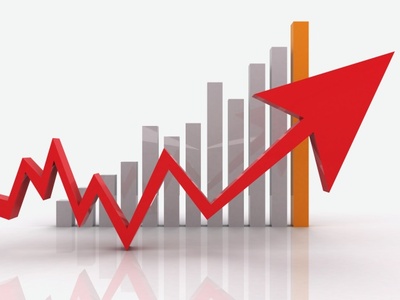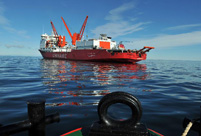 Int'l Snow Sculpture Art Expo in Harbin
Int'l Snow Sculpture Art Expo in Harbin Sichuan money wall for dividend payment
Sichuan money wall for dividend payment Li Na crashes Belinda Bencic in 2nd round at Australian Open
Li Na crashes Belinda Bencic in 2nd round at Australian Open
 Shocking moments when PLA's weapons open fire
Shocking moments when PLA's weapons open fire Famous Lanzhou beef noodles
Famous Lanzhou beef noodles Armed Police hold anti-terrorism drill in SE China's Xiamen
Armed Police hold anti-terrorism drill in SE China's Xiamen Harbin Int'l Ice and Snow Festival opens
Harbin Int'l Ice and Snow Festival opens 'Jin' named the word of the year by cross-strait netizens
'Jin' named the word of the year by cross-strait netizens Chinese scientific expedition goes to build new Antarctica station
Chinese scientific expedition goes to build new Antarctica station
 |
| (File Photo) |
Developed countries do not have enough impetus to maintain the economic recovery in the short term. Emerging economies, which continue to be the engine of global economic growth, should not only respond to external challenges, but also need to change their internal development models.
Since the international financial crisis broke out, the BRICS and other emerging economies have played an important role in driving the recovery. From 2011, the pace of growth has slowed down in the emerging economies, but their position as the engine of global economy growth has not fundamentally changed. Major developed countries are continuing to experience difficulties related to the sovereign debt crisis, and their ability to drive economic growth is still weak.
It is worth reflecting on the trend of emerging economies over the past five years. Emerging economies suffered little in terms of the direct impact of the financial crisis, but they implemented the same large-scale stimulus measures as the developed countries and consequently took a leading role in recovery and growth. However, pressures from inflation and asset bubbles forced them into a process of deflation. Slowing down the pace of the economic growth has revealed underlying problems that these economies have been accumulating over the years.
First, their rapid growth over a period of many years has largely been due to low prices and massive credit. After the global financial crisis, the ratio between credit and GDP continued to increase, as did the volume of credit investment required to create one unit of GDP. This indicates that the traditional development model in emerging economies has run its term, and economic reform is now essential.
Second, there may be a change in the relationship between emerging economies and developed countries. For example, the major developed counties have carried out a “reindustrialization” that has had a significant impact on the international division of labor. Last year, developed countries showed a strong tendency towards economic recovery, but this did not drive simultaneous growth in the exports of emerging economies.
Third, emerging economies urgently need to overcome the consequences of the global situation. Over the past five years, the lead that the emerging economies took in recovery and high growth has muffled the importance and urgency of reform.
Fourth, it will be essential to monitor the effect on the direction of international capital flows due to developed countries withdrawing from quantitative easing in the near future.
In summary, emerging economies will continue to play a role as the engine of global economic growth, not only in responding to external challenges, but also in changing their internal development model.
The international community often considers China’s economic trends as an indicator for the analysis of the prospects for emerging economies. The Third Plenary Session of the 18th Central Committee of the C.P.C made a timely decision on comprehensive strengthening of reform. The success of China’s reform will serve as a good example in contributing to the continued growth of the emerging economies and the global economy.
 Su-30 fighter formation taking off for training
Su-30 fighter formation taking off for training  Xuelong carries on mission after breaking from floes
Xuelong carries on mission after breaking from floes Charity exhibition raises money for panda protection
Charity exhibition raises money for panda protection 'Map of China' on the stone
'Map of China' on the stone  Chinese naval escort taskforce repels 4 suspicious vessels
Chinese naval escort taskforce repels 4 suspicious vessels World's weekly photos (1.6-1.12)
World's weekly photos (1.6-1.12) Li Na crashes Belinda Bencic in 2nd round at Australian Open
Li Na crashes Belinda Bencic in 2nd round at Australian Open Weekly sports photos
Weekly sports photos China's national pole dancing to play 'The Butterfly Love'
China's national pole dancing to play 'The Butterfly Love'  The never-ending Silk Road
The never-ending Silk Road  Spring Festival travel rush: One window, one world
Spring Festival travel rush: One window, one world Int'l Snow Sculpture Art Expo in Harbin
Int'l Snow Sculpture Art Expo in Harbin China photographs internal structure of water molecule
China photographs internal structure of water molecule 'Predator' makes proposal to girlfriend
'Predator' makes proposal to girlfriend Thousands of fish frozen on Norway sea
Thousands of fish frozen on Norway seaDay|Week|Month